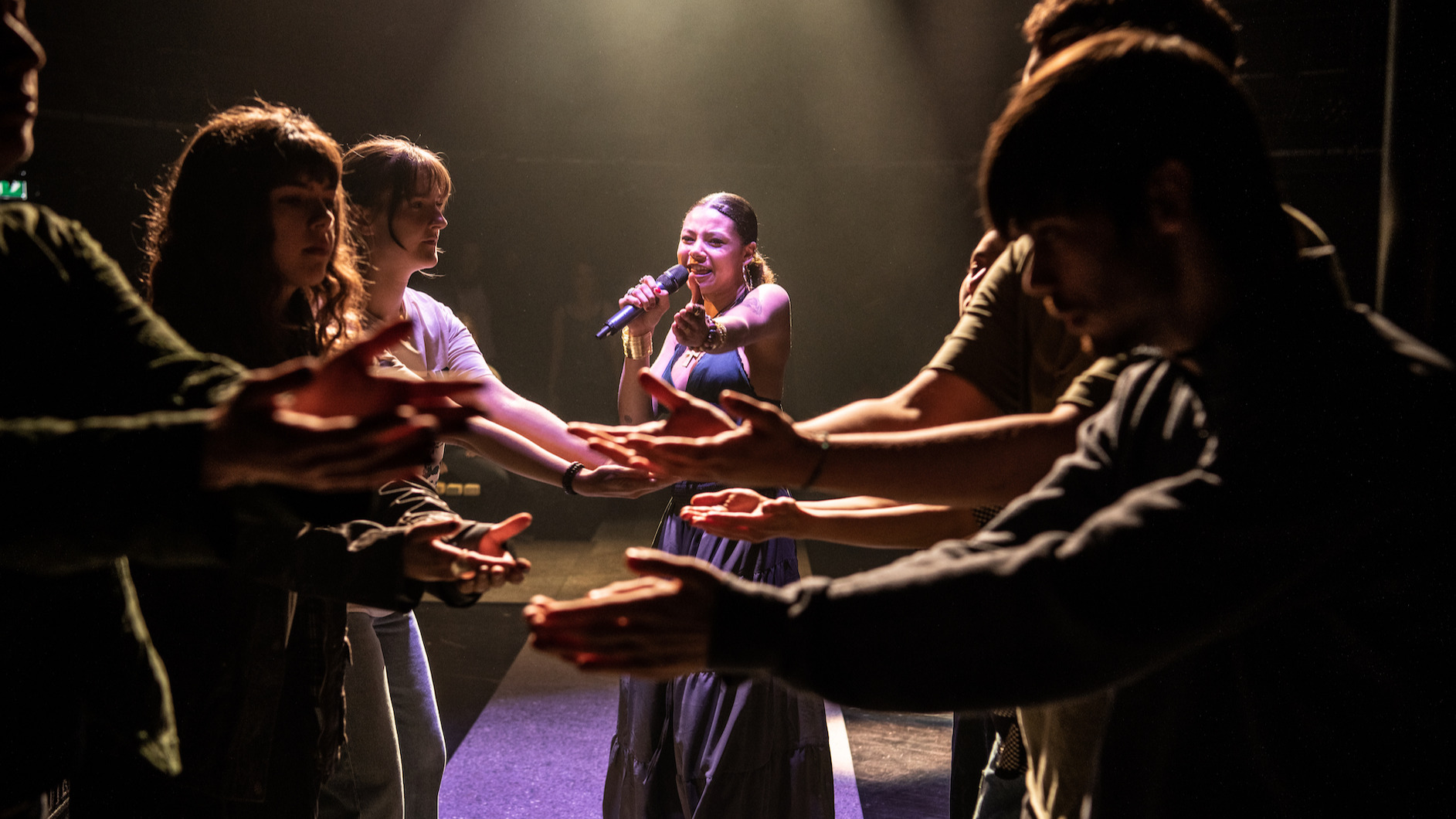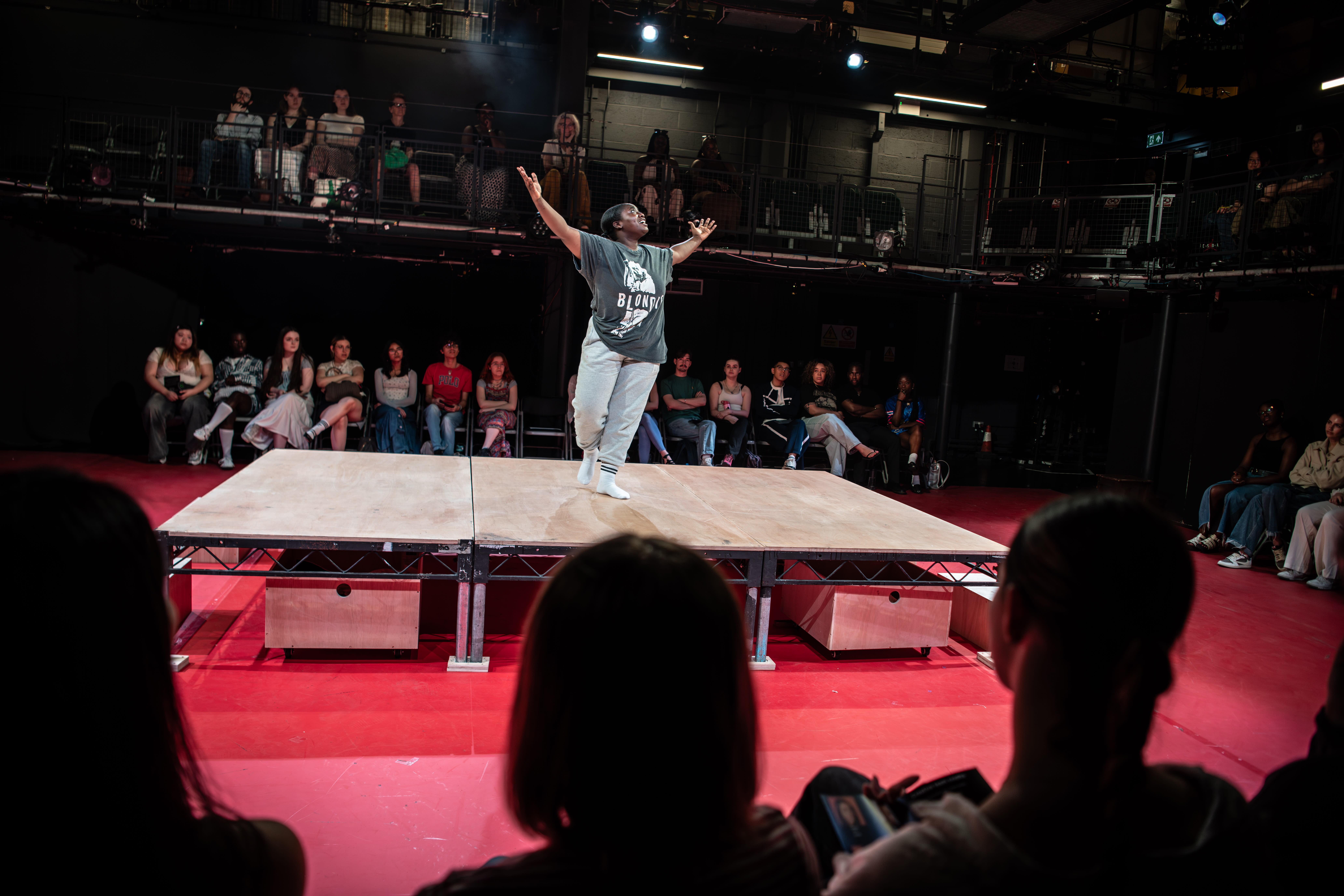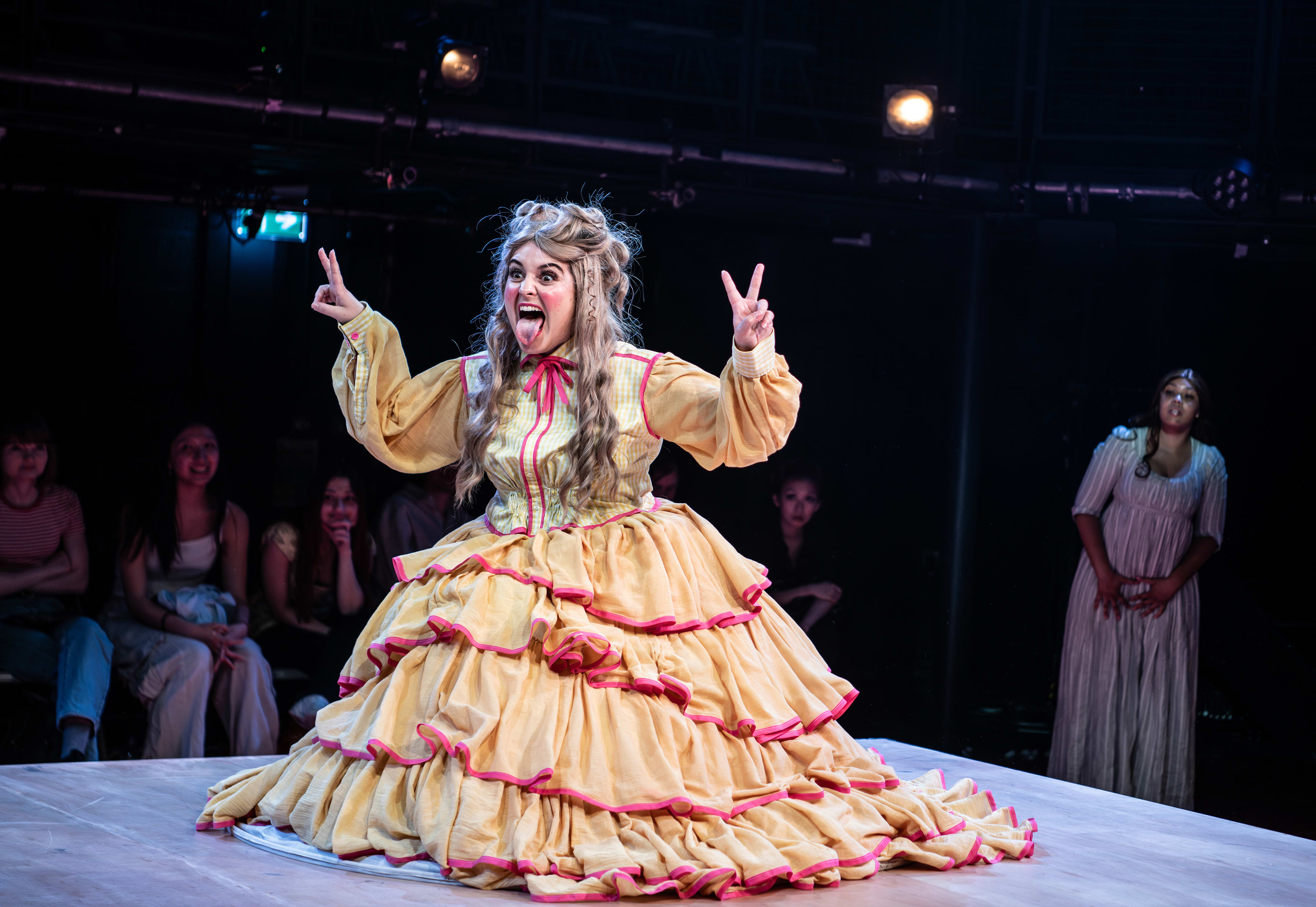Course units
Year 1
Unit 1: Introduction to Acting and Performance
This unit is an introduction to your course, the College and the University. Focusing on best practice for working in a collaborative environment, it grounds you in the ethos of the course. The unit also provides an induction to our performance making facilities.
Unit 2: The actor's process
This unit will introduce you to the acting and training fundamentals needed to build your own practice. You will explore and critique key approaches to contemporary acting and performance making. You will be given tools to reflect on and document your practice and process.
Unit 3: The actor and the world
This unit will introduce you to concepts around the local and the global. It looks at environmental, racial and social justice practices and how they might inform your approach to staging a canonical work. You will explore the creative potential of acting and performance to tell stories, give voice to marginalised experiences and generate alternative perspectives.
Unit 4: The actor as world maker
This unit highlights questions concerning the relationship between acting and the world, reality and representation. This awareness will help you grow your acting and performance-making skills so you can authentically position yourself as a storyteller within a peer-led theatre company. You will be encouraged to identify and explore other production roles including writing, direction, sound and lighting alongside your primary role of actor/performer.
Year 2
Unit 5: Collaborative and collective practices
You will be introduced to different ways in which collaborative working can help you to focus and enhance your own creative strengths. You will have the chance to work with fellow students and creative communities.
Unit 6: The digital actor
This unit introduces you to the field of digital performance and its transformative impact on contemporary theatre forms. You will consider how an actor can use new technologies to generate innovative live performances and further build on your skills as a multi-skilled actor/performer.
Unit 7: The post dramatic actor
This unit looks at diverse contemporary acting practices, directors, theorists and practitioners. Project briefs will enable you to focus on staging a post-dramatic work. Working in groups or companies, you will experiment with compositional methods, rehearsal strategies and develop new hybrid practices.
Unit 8: The actor as author
This unit explores different approaches to solo performance making processes, in relation to your own interests and emerging practice. You will investigate your own stories, histories and cultural identities in relation to pre-existing modes of practice and representation.
Year 3
Unit 9: Professional futures
This unit aims to address the 3Es: employability, enterprise and entrepreneurship. You will reflect on your learning and skills across the entirety of your study. You will have an opportunity to showcase your outcomes and intentions. You will consider your next steps as you enter industry or continue with your education.
Unit 10: The actor as creative researcher
This unit will build upon your solo making practice, providing you with a firm grounding in performance research. You will learn how to situate your own work in relation to the industry. The unit asks you to undertake a research project in the field of performance and to present your findings through a piece of performance practice, video essay or a piece of writing.
Unit 11: The contemporary actor
This unit will provide you with a firm grounding in the practical production of contemporary performance. You will perform in a professional-standard public production, using a range of contemporary acting techniques and digital performance processes. Working with directors, designers, technicians and other performers will expose you to the full production process.
Optional Diploma between Years 2 and 3
Between Years 2 and 3 of the course, you will also have the opportunity to undertake one of the following additional UAL qualifications:
Diploma in Professional Studies (DPS)
This optional diploma can be taken between years 2 and 3. With support from your tutors, you will undertake an industry placement for a minimum of 100 days/20 weeks. As well as developing industry skills, you will gain an additional qualification upon successful completion.
Diploma in Creative Computing
Between years 2 and 3, you can undertake the year-long Diploma in Creative Computing. This will develop your skills in creative computing alongside your degree. After successfully completing the diploma and your undergraduate course, you will graduate with an enhanced degree: BA (Hons) Acting and Performance (with Creative Computing).
Diploma in Apple Development
This optional diploma can be taken between years 2 and 3. You will have the opportunity to become an accredited Apple developer, undertaking a learning programme designed by Apple for UAL. After successfully completing the diploma and your undergraduate degree, you will graduate with an enhanced degree: BA (Hons) Acting and Performance (with Apple Development).






